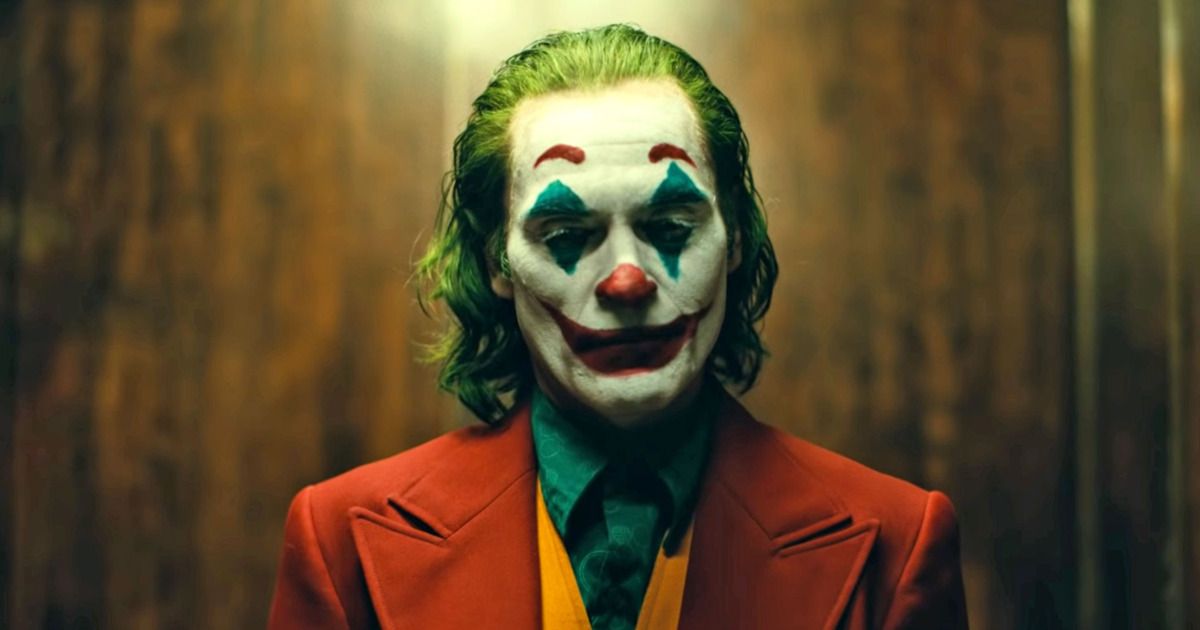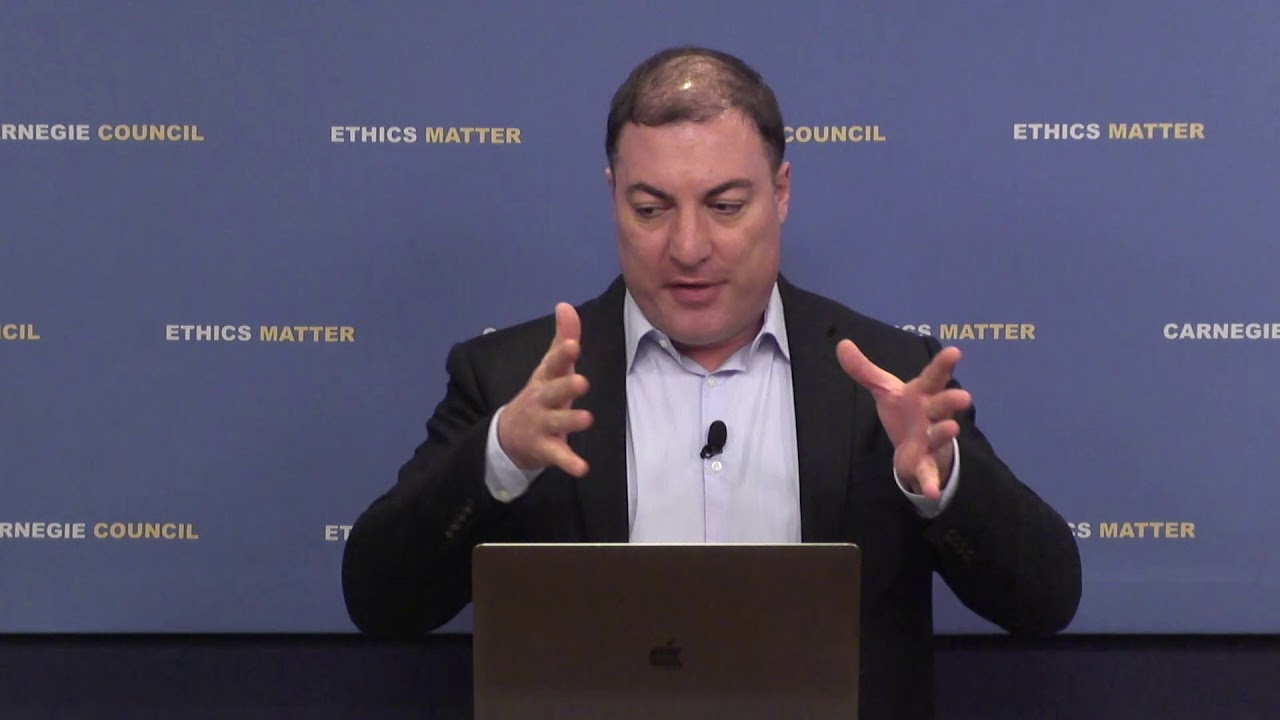
Garbage collectors on strike—that is how Joker starts. This is a fact both banal and vile. It describes New York City in the ‘70s-‘80s—or Los Angeles today. As public policy, it is a problem of city officials and union officials negotiating for advantage. Adjustments are necessary, yet liberalism triumphs if our thinking is reducible to negotiations and adjustments. But then in the press, there’s talk of super-rats, people complain about the revolting sight and smell, and the miasma begins to spread: Are we living garbage lives among the garbage piles?
"Progress might turn out to mean liberalism can do therapy for every mutilation it inflicts."
Thinking about strikes or unions or contracts in the abstract excludes the grimace and the sense of choking in the presence of rotting garbage. It removes experience from the problem. It starts with abstractions about organization and hopes to lead to a concrete agreement. But that’s only possible for liberal elites—the people, especially the poor, are stuck with the humiliation of the rotting smells. By chance, they learn that their elites don’t even know or care. In pointing to this, Joker begins to criticize liberalism’s inability to understand either violence or morality, because it does not understand anger, which defines men.
The Joker himself is the exemplar of manliness because he’s unmanly, a loser in a world of losers. However weak and fearful he seems, he ends up a murderer in an asylum, dreaming of the coming revolution, when men in clown masks terrify the people. The mass murderer proves shockingly that liberalism is wrong about what therapy can do and what man is. In attempting to create angelic post-violence creatures, it creates beasts. But Joker needs to add something not obvious in violence, the desires whose disappointment causes violence. Accordingly, the Joker is a sensitive soul, an aspiring artist, a man who wants to be loved by others for the beautiful things he makes. And because of his delusions about art, he nurses a great hatred of rich businessmen with their crass way of speaking. The Joker cannot start a revolution, but he can kill Batman’s parents.
He is a young man without a father, for whom the motherly authority of liberalism increasingly feels like a poison—it’s always fantasies and pills he’s supposed to swallow, it’s always some deluded optimism that cripples any desire to act, it’s always sleepwalking through life, pretending suffering is some cosmic mistake. One day, having decided that he has woken up from that dream, the Joker murders his mother, she who put him through it. The dream is morality—suffering is fate. Joker tells this story from the Joker’s point of view. This tests liberalism’s commitment to fearless understanding of every perspective, compassion for every suffering, and willingness to entertain any idea. How about madness? As we see in the press, here liberalism recoils. Still, the film is a liberal’s attempt to deal with madness: the Joker, the man who disagrees with liberalism, can only be a nihilist mass murderer.
Mothers and Fathers
In our liberal order, every experience we put a name to is very quickly abstracted away from us. Legally and politically, we redefine anything, however fundamental to society, including what marriage is or what family is, because liberal elites want the change. They may be right or wrong in any given case, but their procedure is to recreate our experience by speaking in an abstract way—instead of looking to our experiences—and then to compel us to obey a new dispensation. We are inadequate to their purposes and have to be adjusted to be worth any of that famous liberal compassion. Progress might turn out to mean liberalism can do therapy for every mutilation it inflicts.
So too, every word becomes the air quote version of itself when liberal elites become interested in it. The Joker learns his life is populated by air quotes—his mother is only his adopted mother, an insane woman who seems to have adopted a child to fit an insane fantasy. The system allowed her, that is, no one took personal responsibility for woman or child. She does not seem to have taken care of him, so she is not a mother in the usual sense by habit any more than by giving birth. She is now a demented old woman but seems nice, innocuous. She never hurt a fly, so how could she raise a monster?
It turns out, she could. She told the Joker a pious lie whose ultimate form is: Thomas Wayne is your illicit father. Bastardy would be fine, were the father important, powerful, because suffering would finally be replaced by blessedness!—After all, no one even says the word bastard in our time, although our society is full of bastardy for the first time. As liberalism puts air quotes around words to which our love is attached, it constantly destroys words to which our shame is attached. Shame is the Joker’s defining experience, however. If there is neither a word for it, nor a solution to it involving actual human beings, a man could go crazy…
Thomas Wayne, this air quote father, is what we call a role model—billionaire entrepreneur, full of the work ethic, about to enter politics. All Gotham’s failures will become his problem to solve—he will be an air quote father to every needy child, telling them all what failures they are. The Joker’s rebellious bohemian art as the bastard child of Wayne’s bourgeois productive work: The dissolute children of frugal respectability. The system didn’t fail the poor—they failed the system. Liberalism asks of us to role play much of our lives and occasionally we fail its haughty aspirations. How can the richest city in world history be reduced to misery when instead we should have Progress? The people have failed liberalism! How can America elect Trump? Americans have disappointed liberalism…
But we shouldn’t generalize too quickly. The Joker has another father figure, another role model, who gives him a gun and betrays him to the authorities, whom he also murders. He is also a clown for hire, as much stuck in the working-class grime and workaday routine as the Joker. Twice he says to the Joker, “You know you’re my boy!” The Joker feels abandoned, betrayed, and is tired of feeling like he’s disappointing everyone, starting with his mother.
And there are plenty of air quote mothers to disappoint. Aside from the one with whom he lives, who seems to hold him in concealed contempt as a useless creature without a future, there is the black woman doctor at Arkham Asylum, whom he seems to have murdered at the end of the story. There is the black woman social worker on whom he depends for pills to eliminate his pain, who always judges him and is disappointed in him, and whom he hates because she doesn’t respect him as a man. Two other black women, these two with children, appear in the story, one of whom the Joker fantasizes could love and admire him. That would be paradise—a politically correct fantasy.
Liberalism treats the Joker as a boy. He is not well adjusted, forever behind on his homework or in some other way inadequate. Liberalism offers therapy to cure the madness, but at the price of any self-respect. The Joker would have to abandon all his experience of suffering or tell himself it is all because he is not a good liberal. Indeed, he says he only felt peaceful in confinement. Therapy kept him away from people who give insult or injury and also removed his capacity to take insult by infantilizing him—through the science of brains and their pathologies. It explained him to himself without any concern for how humiliating that might be, since it explained away any capacity to feel humiliation in the first place. All your questions are answered by this science as soon as it denies that you are a human being, that is, the only kind of being who asks questions. The doctors we see in the movie are exceptionally clear about the fact that they share no common humanity with the Joker.
The last of the air quote fathers is Murray Franklin, an image of Johnny Carson, the classy everyman, the weirdo who pretends to be normal, with just a dash of impish humor, in order to amuse normal Americans. His life may be crazy, but he seems normal on TV. The Joker wants that normality that only TV could bring him—glamour, imperviousness to bad things, celebrity to justify his suffering and bring him the great rewards the lack of which wounds him so terribly. The Joker also fantasizes about murdering Franklin for taking the side of normal Americans against his own kind, bizarre Americans.
Anti-Christ
It may seem a mere matter of chance, but the Joker is the anti-Christ. A crazy woman claims some exalted parentage for a boy whose madness leads him to a bloody public catastrophe through confrontation with the authorities in his early thirties. Of course, whereas Christ incurred the wrath of man, the vengeance mankind take for their mortality and misery, the Joker wishes to inflict it. But he is constituted in an important way by the element of chance—the Joker’s insight is that chaos is real and liberal Progress a fantasy.
Joker offers a strange mix of scientific and poetic accounts. The scientific account is, the Joker had brain issues and he was on pills. More medication and therapy were needed; if only liberal elites could command more of the money in America and do the moral thing—make more hospitals. The problem, though, is that liberalism on its own legal political terms cannot compel the Joker to obey and he won’t, because the scientific account of his brain problems says nothing to him about the value of his life. It can identify and diagnose madness, but it neglects the effects of calling a man mad—after all, he may be just a patient or a case to liberalism, but he is all he has got by way of humanity to himself. What if he takes his own side in the quarrel?
So the poetic account is more muddled, showing the competition between liberalism and the Joker. The liberal poetic account says you should be decent and you will get success. Mother says, now be a good boy and do what you’re told; father says, what’s the matter with you? Don’t you know what you’re supposed to do? It is the Joker’s fault for failing either variety of liberalism. And yet the Joker interprets his own experience differently and begins to think his suffering is not a mistake of his own making, but that it reveals the fundamental character of being human. Agony is the truth about mortality. By chance, liberalism failed to control him and thus he learned the power of chance. Accidents turn out not to be accidents at all—they are fate. He cannot have self-creation without murdering his parents. In this way liberalism leads to liberation, but does anyone think it is funny?
The Joker has noticed, in his humiliation, that people have no respect for those at whom they laugh. Other comedians make sex jokes and that makes them popular. Their desires for fame are satisfied by playing with people’s erotic desires. His desires cannot be—he is repulsive, a creep—all his desires turn into the pain of rejection, failure, neediness. For all the talk about equality and inclusion, he is down and out. The Joker is learning just how much cruelty there is in humor. His madness is his laughter at serious, unfunny things. A terrible idea is dawning on him—morality is the joke, the long, elaborate set up to a punchline no one laughs at: Nihilism. Everyone was in on the con, everyone taken in as well. The Joker’s own poetic account of himself centers in anger, the desire for retaliation, which liberalism promises is not real and also can be dealt with. The Joker became his own kind of woke and that terrible clarity of vision told him the only freedom is murdering everyone who is not similarly woke. Madness is impervious to liberalism; but it is not obvious that liberalism is impervious to madness.

